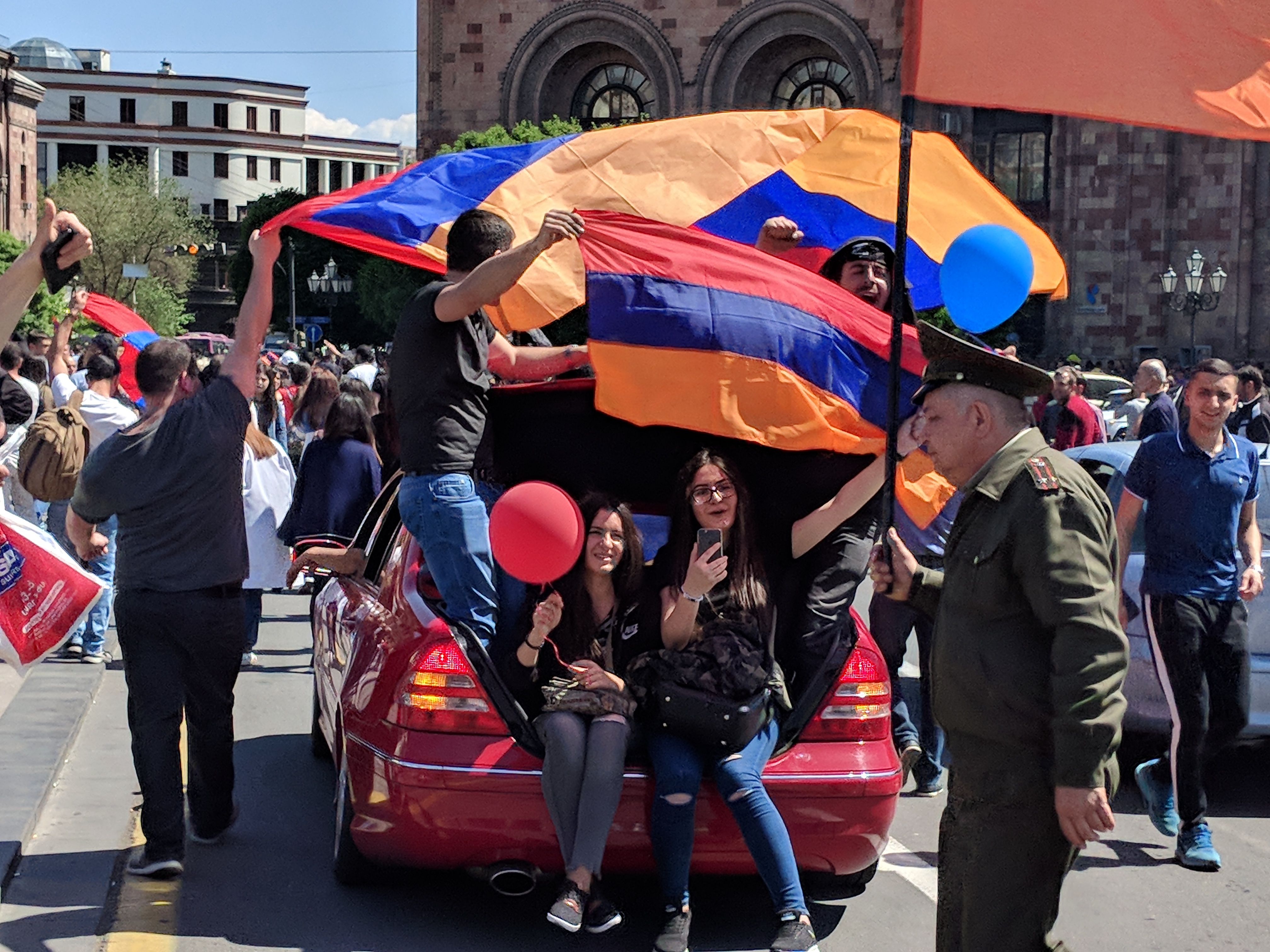The "Point of No Return" has been reached

The mood at the demonstrations is now much more relaxed
Freiheit.org spoke with Peter-Andreas Bochmann, Foundation for Freedom Project Manager for the South Caucasus, about the current situation
You visited Armenia just a few days ago. Why return so quickly?
Last week, many observers, including our partners, were still sceptical whether the protests initiated by Nikol Pashinyan under the banner of ‘Serzh has got to go’ had any chance of success. In the past, mass protests used to just stop very abruptly. Nobody saw how precisely he apparently hit a nerve with Armenians. Nobody expected him to mobilize not just tens of thousands but, eventually, hundreds of thousands. As a first result of the ‘Velvet Revolution’, as it is called, Serzh Sargsyan resigned his premiership somewhat unexpectedly. His exact words were ‘I made a mistake; Nikol is right’. This has obviously changed everything and given a whole new momentum to the situation. We wanted to see that with our own eyes.
What are your impressions?
There are still protests, day after day. There are still spontaneous road blocks and other protest events in the capital, but also in many other cities and even villages. Drivers honk in solidarity. There is a large demonstration in the Republic Square in Yerevan every night; it keeps drawing even larger crowds. Wednesday night for example—a night when we were there—at least a hundred thousand people joined. Speakers, many of them young, are addressing the crowds from a large, professional-grade stage. They are demanding the resignation of Karapetyan, the acting Prime Minister. As if this were not enough, there are also calls for the Republican Party, which is corrupt and has ties to organised crime, to be ousted altogether. Speakers keep emphasizing that this is a peaceful revolution, that the revolution has its origin with the people, and that there is no outside interference. Zero backlash is in evidence. Even those who still voted for the Republican Party in 2017 — in an election that was definitely questionable — are either resigned to accepting the inevitable or have joined the protesters. The overall situation reminds me of the mood in the GDR in the autumn of 1989.
Meanwhile all other opposition parties, those that were sceptical in the beginning, have also joined. Somewhat surprisingly, even cabinet members — ministers and deputy ministers — have resigned their offices and joined the protests.
What do you think will happen in the coming days and weeks?
The worst-case scenario, the one where the old elites resort to violence to suppress the revolution, is considered very unlikely. We are past the point of no return. In all probability, parliamentary party alliances will shift, and Parliament will elect a new Prime Minister in its session next week. The way things stand, the only apparent candidate is Nikol Pashinyan, member of Parliament and Head of Civil Contract, one of the smaller opposition parties. He is widely considered a hero, but from my point of view he is acting with prudence and tact. As a matter of fact, all Armenians, including the ones under attack, are remarkably level-headed in the face of these radical changes. Maybe this is due to Armenia's active civil society. But, of course, next week could open up additional possibilities.
What Pashinyan and his revolution really want in terms of ideology is still unclear, but so far he appears to be a pragmatist: get rid of the old elites; get rid of corruption and racketeering; reform electoral rules to guarantee free and fair elections; then call a general election a few months down the line.
If everything works according to plan, then Armenia's ‘Velvet Revolution’, which Pashinyan has taken to describing as a revolution of ‘Peace and Love’ lately, could, according to one international observer, encourage comparable movements in other countries. Leverage the power of the street to peacefully democratize a post-Soviet system and free it from corruption and oligarchs — this is what Armenia's protesters want.
We will definitely keep observing and reporting.
Listen to some of the observations of the FNF Project Director on the ground- in German below.